
Uichiro Niwa, former Japanese ambassador to China, told reporters on Monday that the "purchase" was poorly timed.
Niwa said the Japanese government's decision infuriated Beijing, and now both countries have no choice but to allow the issue to cool.
Murayama issued a well-received apology in 1995 for Japan's wartime atrocities.
He is scheduled to meet with Tang Jiaxuan, former State councilor and current president of the China-Japan Friendship Association.
Abe is following a hard and soft policy toward China, said Ruan Zongze, vice-president of the China Institute of International Studies.
Abe's speech to parliament focused on the economy but he also touched upon Japan's security situation, which he said was "getting more severe".
He vowed that his government will "firmly protect" the safety of the Japanese people and territory.
Japan's maritime surveillance capability and the country's emergency response capacity will be beefed up, Abe added.
Tokyo has planned a draft budget proposed on Sunday for increasing defense spending from the next fiscal year by 40 billion yen ($440 million), Japan's Asahi Shimbun newspaper reported on Monday.
This is the first boost to defense spending in 11 years.
The budget for the Japan coast guard will be 176.5 billion yen in fiscal 2013, a rise of 40 percent from fiscal 2012. The amount earmarked for the "protection of Japanese territory" is 36.4 billion yen.
Feng Zhaokui, a senior specialist on Japanese studies at the Chinese Academy of Social Sciences, warned of a potential lose-lose situation.
"Japan is still seeking to ramp up its armed forces under the cover of the US-Japan alliance," Feng said.
A growing number of the Japanese public supports expanding the military, a survey by the Asahi newspaper and a University of Tokyo research team showed. About 50 percent of voters were in favor of revising the pacifist constitution, up from 41 percent in 2009.
Abe has made it clear he wants to loosen the constitutional limits on the military. The constitution has never been formally altered since it was drafted by US occupation forces in 1947.
Forty-five percent of voters were in favor of allowing Japan to exercise its right to collective self-defense, or coming to the aid of an ally under attack. That was up from 37 percent in 2009.

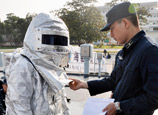
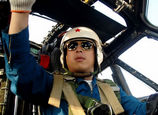
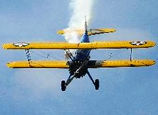

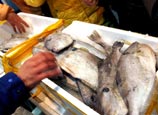
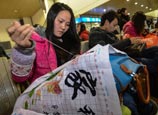

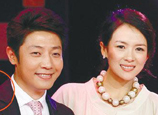
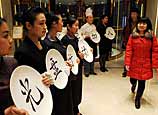







 People on way home during Spring Festival travel rush
People on way home during Spring Festival travel rush


![]()
